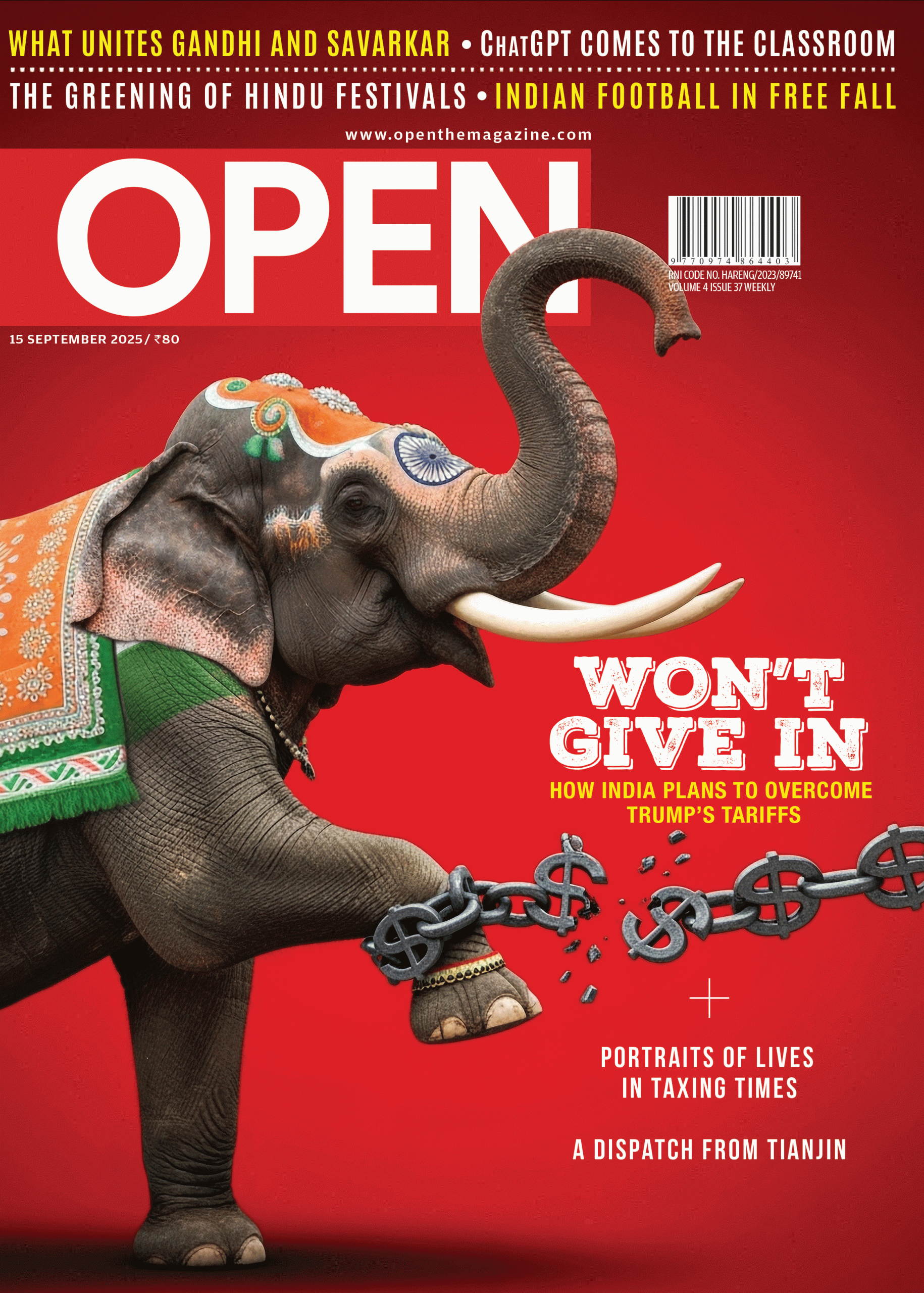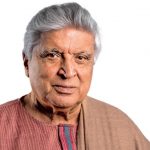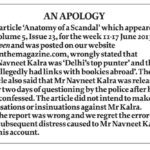Nonsense
There is no better word for the claim that Anna Hazare’s anti-corruption movement is ‘apolitical’
 Hartosh Singh Bal
Hartosh Singh Bal
 Hartosh Singh Bal
|
12 Oct, 2011
Hartosh Singh Bal
|
12 Oct, 2011
/wp-content/uploads/2015/11/anna-politics-2.jpg)
There is no better word for the claim that Anna Hazare’s anti-corruption movement is ‘apolitical’
“We have nothing against any political party. Our entire movement is apolitical, as is very clear now” ~ 10 October 2011
Or so Kiran Bedi claimed even as her colleagues were campaigning against the Congress in Hissar, Haryana, for a Lok Sabha by-election. Perhaps we need to get used to the absurd; what else can possibly save us from the hypocrisy that is being played out before us in the name of a public movement?
A few months ago we were told by Anna Hazare:
“I haven’t given up the fast, I have only suspended it. My fast will really end when all our demands are met, when Parliament passes the Bill and there is genuine reform in the country” ~ 28 August 2011
Television anchors announced that a major victory for the people had been won after Parliament passed a resolution that allowed Anna to break his fast. His team echoed such sentiments.
Someone must have been lying then, because it appears that with little more than a month having passed and the Winter Session yet to commence, what Parliament had passed suddenly does not seem good enough. Either it is the case that a desperate Anna and his team sold a face-saving compromise as a ‘victory’ and TV channels equally hungry for TRPs swallowed and propagated this claim, or they have gone back on what they had asked for at the time of the compromise. It does seem that in the time it took to regain his strength, Anna has decided he is ready for another bout with the Government. Which is perhaps why, earlier this month, Anna told the same TV anchors (who, it must be admitted, did look appropriately befuddled at this latest turn of events):
“If the Congress doesn’t pass the Bill in the Winter Session, our agitation will start, but we will not support any particular party. Rather, we will appeal to people to back candidates with character” ~ 5 October 2011
Suddenly, a deadline was being imposed on Indian Parliament, a deadline that was not part of the compromise, and a deadline that no political party could possibly commit itself to, despite claims (or, to be blunt, lies) by Anna’s team to this effect.
The statement indicated that Anna had already taken a step in a direction that would bring the movement in contact with the electoral process. It was difficult to claim that the movement was not political at this point, but it was possible to argue that this was a principled stand, no political party was being favoured, and ‘candidates with character’ could be loosely interpreted to mean that people believed to be corrupt would be targeted.
However, contradicting Anna’s earlier claims, his man Friday Arvind Kejriwal began campaigning in the Hissar by-poll not after, but before the Winter Session. No longer was the team making a decision on who to support or oppose based on the ‘character’ of candidates. As Kejriwal told the electorate at a public meeting in Hissar:
“Except the Congress, give your vote to any of the other 44 candidates in the fray. Do not worry excessively that there are corrupt individuals among the candidates. If they win, the Lokpal Bill will send them to jail” ~ 10 October 2011
Let us try and understand Kejriwal’s logic (if it can be termed that)—as long as the Congress is kept out, it does not matter that corrupt politicians are elected to Parliament. In fact, to take this argument to its logical conclusion, Kejriwal seems to suggest that if enough corrupt non-Congress politicians are elected, they will pass a Lokpal Bill that will ensure they are sent to jail. It says something about the IIT joint entrance examination that a man who can make light of logic so easily got through.
Try and reconcile his statement with the initial premise of this movement, which was avowedly anti-corruption, not anti-Congress. What the mobilisation did was channel popular anger against corruption in India towards the rather limited demand for a Lokpal bill. Hazare seems to have sensed how limited an idea the Bill is in the face of such public fury:
“I want to tell the youth of this country that this fight should not stop [at] the Lokpal alone. We have to fight for removing the faults of the present electoral system. Because of faults in the electoral system, 150 criminals have reached Parliament” ~ 20 August 2011
Again, like most of Anna Hazare’s pronouncements, it sounds virtuous, but it makes little sense. It seems to imply that either the electorate is stupid for having elected chargesheeted candidates, or we need to change our laws to tag people as ‘criminals’ before they are convicted. The people he terms ‘criminal’ have not been held as such by the courts so far; they have not been indicted, they have only been charged with crimes.
If this does not count for hypocrisy, look at this in the context of the campaign his team is waging in Hissar (and nothing of what is stated here changes because of the final result, which will be out by the time you read this).
There are three serious candidates in the fray. One is Kuldip Bishnoi, son of former Haryana CM Bhajan Lal, whose death led to this by-election; there is Ajay Chautala, son of former CM Om Prakash Chautala; and there is the Congress candidate Jai Prakash, handpicked by the state’s current CM Bhupinder Singh Hooda.
With the legacy of two former CMs and the prestige of the incumbent CM at stake, this is no ordinary by-election. The constituency is polarised between Jats and other castes who have come together to support Bishnoi as the only major non-Jat candidate. Hissar’s Jat votes are expected to split themselves between Chautala and Jai Prakash.
When Kejriwal and Bedi go around asking people not to vote Congress, their attempt effectively is to shift Jat votes to Chautala. This is not lost on anyone in Hissar, least of all on Kejriwal, who is a native of the city. In effect, Anna and his team are campaigning for Ajay Chautala. It then makes sense to examine the record of the man who is by default the first candidate put up for election by the India Against Corruption movement.
On 23 September, a Delhi court framed charges against Ajay Chautala for his alleged possession of wealth in excess of his known sources of income, having found prima facie evidence against him. Special CBI Judge PS Teji noted, “I am of the considered opinion that prima facie a case for framing charges under Section 13(1)(e), read with Section 13(2) of the Prevention of Corruption Act, is made out against the accused for acquiring assets disproportionate to his known sources of income…It has been demonstrated that during the check period (24 May 1993 to 31 May 2006), Ajay Singh Chautala [had an] income of Rs 8.17 crore, whereas he acquired assets worth Rs 27.74 crore, that is [an increase of] 339.27 per cent, which were disproportionate to his known sources of income.”
The court also stated that the sitting Haryana MLA has “failed to give any explanation with regard to assets accumulated by him. He has failed to disclose the legal sources from which he acquired such assets.”
Chautala has managed another incredible feat. His election affidavit filed on 26 September says his wife bought 15.3 acres in village Lambi in Dabwali, Sirsa district, for Rs 8.78 lakh on 11 September 2011. Fifteen days later, according to the affidavit, the land’s value had reached an astounding Rs 1.5 crore.
Under the circumstances, perhaps Anna and Kejriwal should be answering some questions about this sudden desire on their part to campaign in this by-poll. The only explanation forthcoming are these words of Kejriwal in Hissar:
“Don’t you want to know why we are agitating against the Congress? It was their duty to pass the Jan Lokpal Bill, but they did not do it” ~ 10 October 2011
This brings us back full circle. When could the Congress have passed this Bill? At the end of the last session of Parliament, Team Anna had claimed that they were satisfied by the resolution passed in Parliament. The next session has not even begun, so what is Kejriwal talking about?
Perhaps, at this stage, parallels with another people’s movement are worth drawing. What in 1974 began as the Bihar Movement under the leadership of Jaiprakash Narayan against corruption in the state government ended up as a demand for Indira Gandhi’s resignation. This transformation, however, happened only after her Lok Sabha election was set aside by an Allahabad High Court verdict. Passing or not passing the Jan Lokpal Bill within Anna’s deadline is not an equivalent.
If Team Anna were less laced with hypocrisy and more honest about its actual intentions, it could have said something that does have considerable resonance in India: do not vote for the Congress because the party has run one of the most corrupt governments since Independence. But that would mean honestly taking a plunge into politics, much the way Jaiprakash Narayan did, rather than maintaining the pretence of remaining above and beyond politics.
It now seems clear that Anna and his team are not sure about the sustainability of their movement or its long-term strength. Their Hissar intervention will not affect the electoral result. Rather, it is like a little boy wandering into a ring for a few seconds during a bout between two prizefighters and claiming to have decided the winner. It is a way of garnering some publicity points without risking anything, but sooner or later, it is a strategy that will come back to haunt them. Anna seems to have forgotten why this movement started. Long before it began, he was far clearer on where the problem lay:
“Clearly, the corridors of power breed corruption. And Delhi, India’s capital, comes high on the list. It will take time to mobilise people to fight corruption, but yes, we are working towards it” ~ April 2000
If the movement had been serious about corruption, Team Anna would have needed a much wider perspective than just the specific clauses of a single piece of legislation. This has now become a battle about the ego of a few people who are looking to convey the impression that they can damage the Congress, not because it deserves such a fate (it is difficult to argue with that), but because such a perception serves their personal agendas.
If Anna had been a Gandhian, he would have paid some attention to the question of the means adopted to achieve the end he claims to be fighting for. It is difficult to fight against corruption while in effect backing the corrupt. It is difficult to manage honesty in negotiating a deal on corruption when the man you trust is someone called Vilasrao Deshmukh.
Consider in closer detail how the movement has picked who within the Congress it likes to do business with. Over the recent past, Team Anna has reserved its ire for Digvijaya Singh, who, it is true, has made some statements without evidence, but he is not the only one to have raised questions about the antecedents and motives of the movement. The team has, however, had nothing to say about the utterances of people such as Salman Khurshid, who seems to have earned their trust.
This is the Union Cabinet member who was quoted in The Indian Express, not very long ago, as saying: “What will affect the functioning of the Government is—if other institutions do not understand the kind of political economy we are faced with today. What is needed to encourage growth and investment? If you lock up top businessmen, will investment come?”
When Khurshid asks the Judiciary to bear in mind the impact of its judgments on the ‘political economy’, it is hard to escape the conclusion that he seems to be asking for special caution to be exercised in the pursuit of cases against Big Business. The Judiciary, though, and as a lawyer Khurshid should know this, proceeds on evidence, not on the impact a minister feels a judgment may have on the country. But then, Khurshid was also the man who as Minister for Corporate Affairs oversaw the clean chit given by his ministry to Anil Ambani over Reliance’s holdings in Swan Telecom.
It is no surprise, then, that the two members of Team Anna who have earned respect for their probity in public life over a period of time, Santosh Hegde and Medha Patkar, have both been critical of the decision to target a single political party. Anna’s behaviour, though, has been in keeping with his past, which is full of instances where he has done a volte face while taking up cudgels against ‘corrupt politicians’. This leaves Kejriwal. Is it perhaps too late to suggest that the man be given a seat on the National Advisory Council?

/wp-content/uploads/2025/09/Cover_Tariff-scaled.gif)











More Columns
Peter Navarro: Trump’s Rabble Rouser VK Shashikumar
Faith, Fury and a Poet: Why Javed Akhtar’s Critics Miss the Point Tufail Ahmad
Is Sachin Tendulkar Tipped To Be The Next BCCI President? Short Post